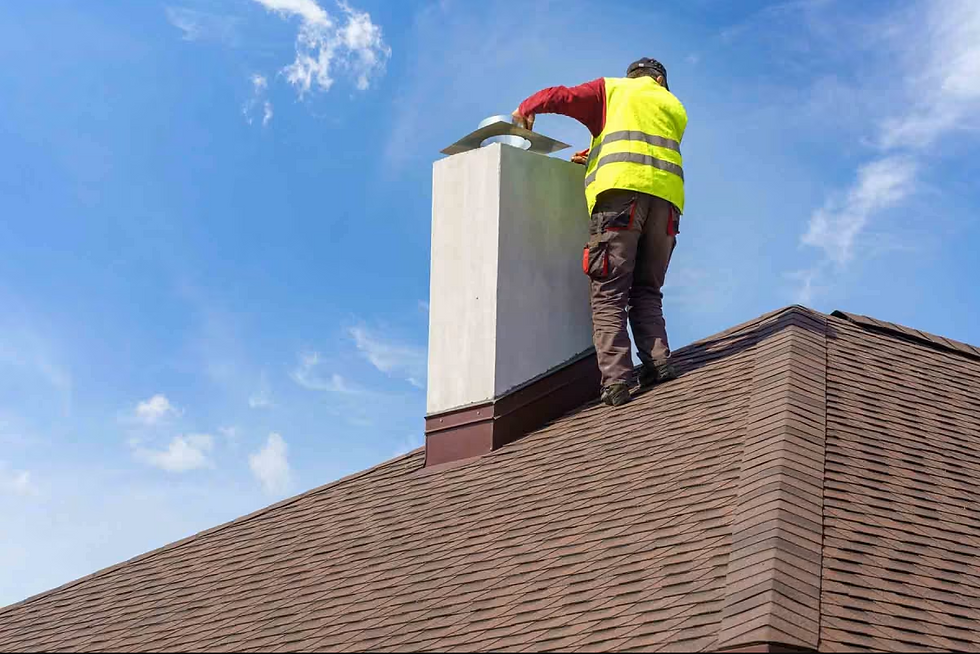When to Walk Away After Home Inspection: Key Tips
- Matt Murrray
- Oct 2, 2024
- 4 min read
Updated: Mar 25
Buying a home in the Lincoln, Nebraska, area is a big decision. A home inspection is your chance to uncover any hidden problems before you commit. But what if the inspection reveals issues? Knowing when to walk away after a home inspection can save you money.
Learn the warning signs and potential deal-breakers when buying a house. With our guidance, you can avoid falling into a money pit.
What Happens in a Home Inspection?
Once your offer is accepted, you usually have a short timeframe, around 10-14 days, to schedule an inspection. During this inspection, a qualified professional examines the property's condition, looking for potential issues that may not be obvious.
The inspector checks various parts of the home, including the electrical system, plumbing, heating and cooling systems, insulation, foundation, roof, windows, doors, and appliances. This detailed evaluation helps you understand the property's true condition and any necessary repairs or renovations.
The inspector also looks for signs of pests, water damage, or other problems that could affect the home's value and safety. By identifying these potential issues early, you can decide whether to continue purchasing, negotiate repairs, or walk away.
Remember, a home inspection provides essential information to help you make the best decision for your future home in the Lincoln area.
Red Flags to Watch Out for After a Home Inspection
A home inspection can reveal a variety of issues. While minor cosmetic problems shouldn't worry you, some major red flags require careful consideration before buying a home in the Lincoln area.
Structural Problems
Serious structural issues, like foundation cracks, uneven floors, or roof damage, can indicate expensive problems. These problems might compromise the house's safety and need extensive repairs.
Mechanical and Electrical Systems
Outdated or faulty electrical wiring, malfunctioning heating and cooling systems, and plumbing problems can lead to expensive repairs and potential safety hazards.
Environmental Hazards
Environmental concerns like lead paint, asbestos, or radon can pose health risks and need specialized solutions. Mold growth, beyond minor surface issues, can indicate moisture problems and potential health hazards.
Other Concerns
Pest infestations and evidence of major previous repairs can also be red flags. Pest infestations can damage the structure and pose health risks, and poorly done repairs might hide deeper issues within the home.
Know When to Walk Away
Receiving a home inspection report with problems can be disappointing. Consider all these factors carefully before giving up on a house.
Cost vs. Value
Weigh the cost of repairs against the property's value. If repairs are expensive and affect the home's worth, walking away might be best. Consider immediate and long-term costs, including ongoing maintenance for the identified issues.
Safety and Health Concerns
Prioritize your family's safety and health. If the inspection reveals hazards like mold, structural problems, or electrical issues, walking away is the responsible choice. No home is worth risking your well-being.
Negotiation and Seller's Response
Consider the seller's willingness to address the issues. If they're willing to negotiate repairs or offer a reasonable credit, it might indicate the property needs to be better for you. A hesitant seller might not be the best partner for this investment.
Your Gut Feeling
Trust your instincts. If something doesn't feel right about the property, even after considering all the facts, walk away. It's better to keep searching for a home that brings you happiness than to settle for one with lingering doubts.
How to Negotiate After a Home Inspection
If the inspection finds problems that aren't major but still need fixing, you can talk to the seller. You can ask them to fix things before you buy the house or lower the price so you can pay for the repairs yourself. Sometimes, the seller might give you money at closing to help with repairs.
Negotiating is about finding a middle ground. Be ready to compromise and focus on the most important repairs. If the seller won't work with you or the repairs are too expensive, it's okay to walk away. If things still don't feel right even after talking, keep looking for a better house.
You Need Professional Home Inspections
A qualified home inspector, like those at Murray Inspection Services, can identify potential problems you might miss. We go beyond surface-level observations, carefully examining every part of the property to provide you with a complete understanding of its condition.
We also provide detailed reports explaining our findings, helping you make informed decisions about your potential purchase. Whether you're a first-time buyer or an experienced investor, we're here to guide you.
At Murray Inspection Services, we understand how significant your investment is. Our thorough inspections help you avoid costly surprises and ensure your dream home is not a financial burden. With our support, you can navigate the home-buying process in the Lincoln area, knowing you have a team of professionals looking out for your best interests.
Is This House Worth It? Get a Home Inspection
You need a thorough home inspection before buying a house. Knowing when to walk away after a home inspection can save you from future headaches and financial burdens.
Remember, it's okay to walk away if the inspection reveals serious problems, the repair costs are too high, or you don't feel comfortable with the property. A home inspection empowers you to make the best choice for your future. If you have any questions or need expert guidance, contact Murray Inspection Services.

.png)



Comments